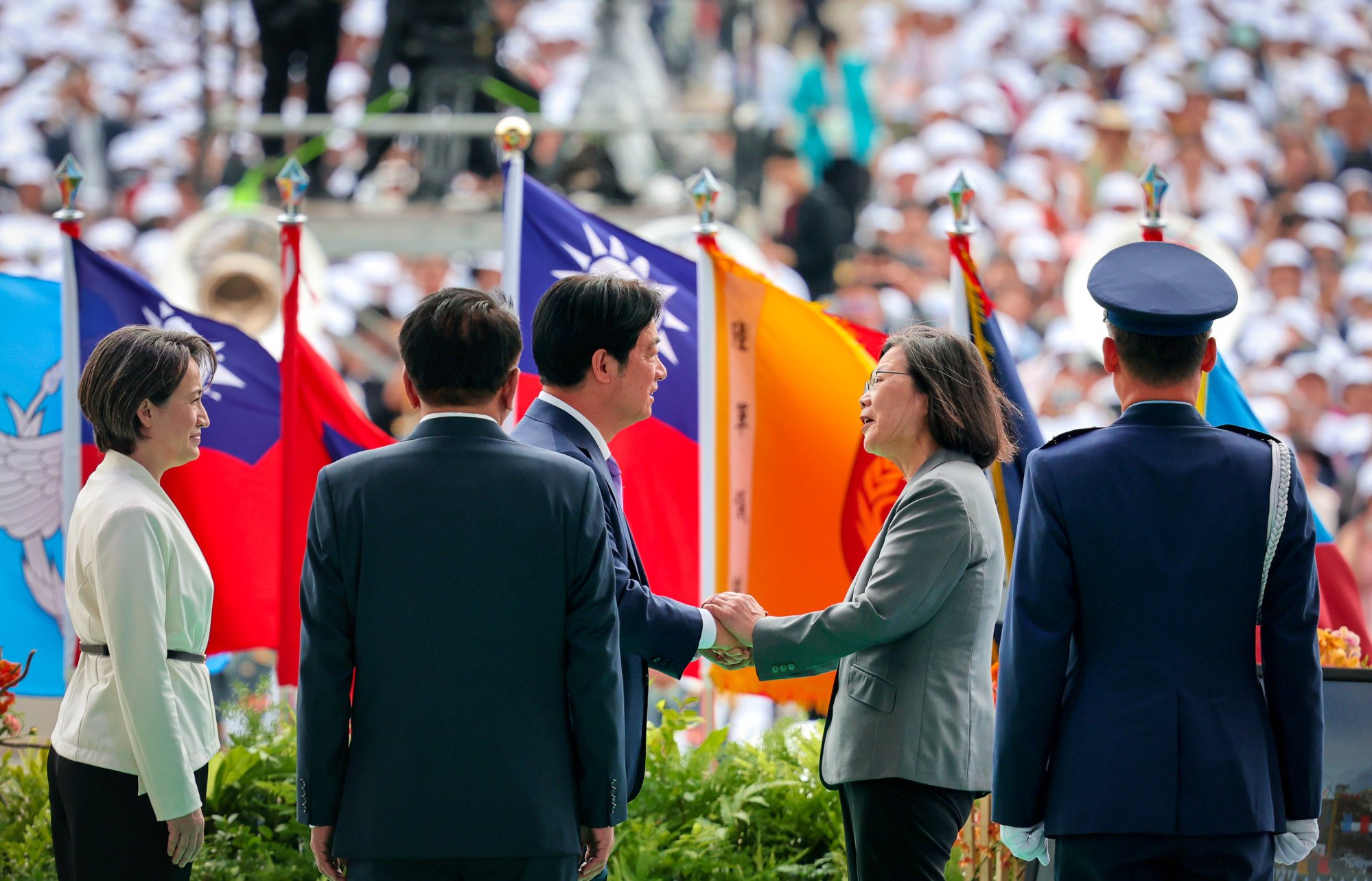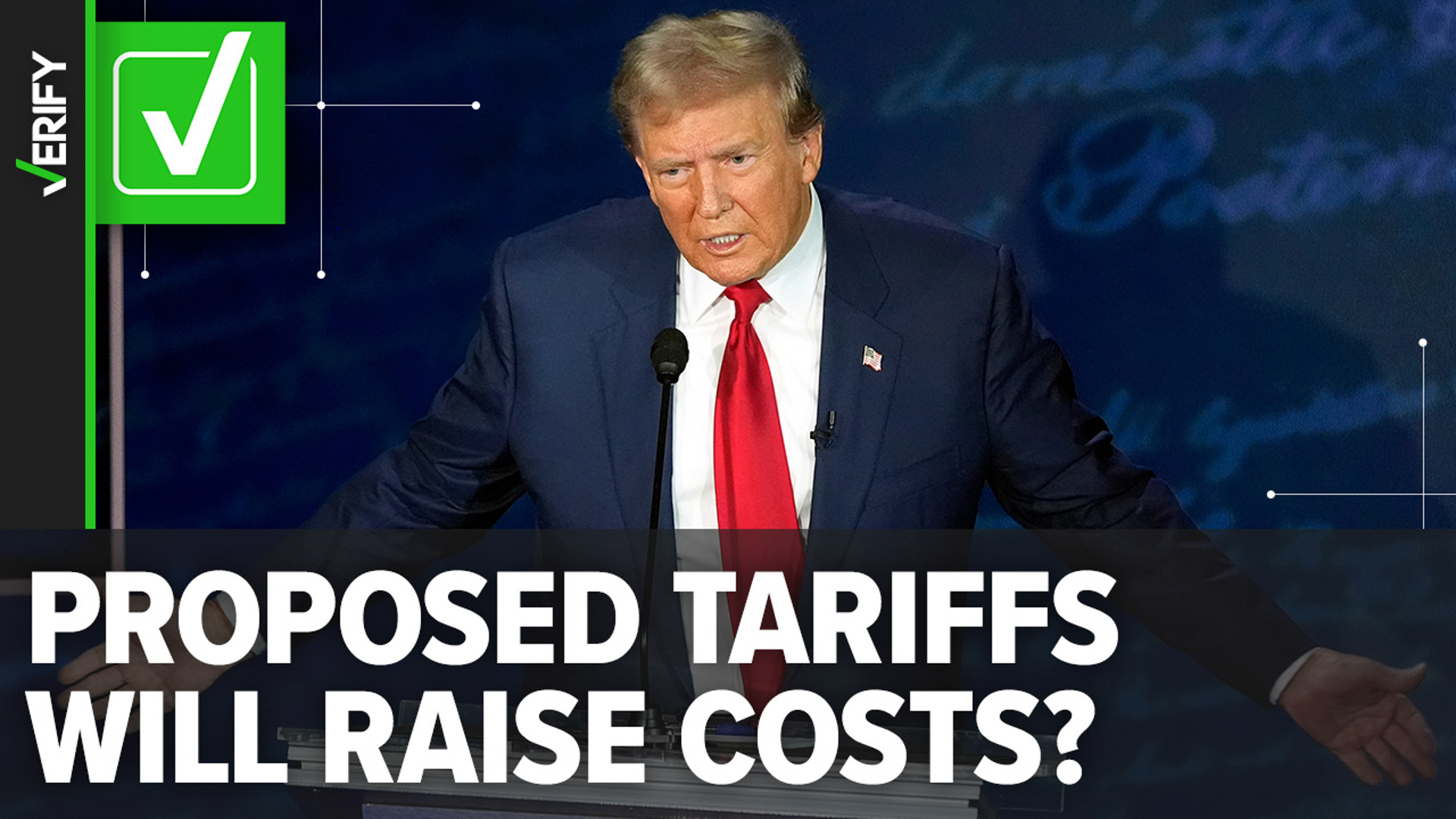Taiwan's Vice President Lai Warns Of Growing Totalitarian Threat

Table of Contents
Specific Threats Highlighted by Vice President Lai
Vice President Lai's warnings weren't vague; they pointed to concrete actions by China designed to undermine Taiwan's sovereignty and democratic institutions. These threats encompass military intimidation, economic coercion, disinformation campaigns, and sophisticated cyberattacks.
-
China's Military Intimidation: The People's Liberation Army (PLA) has significantly increased military exercises near Taiwan in recent years. These drills, often involving live fire and simulated attacks, are not just displays of force; they are calculated actions designed to erode Taiwan's confidence and deter international support. For example, the large-scale military exercises following House Speaker Pelosi's visit in 2022 serve as a stark reminder of China's willingness to use military pressure to achieve its political objectives.
-
Economic Coercion: China, Taiwan's largest trading partner, wields significant economic leverage. Beijing has employed tactics like restricting Taiwanese access to crucial markets, imposing trade barriers, and targeting specific Taiwanese industries to exert pressure. This economic coercion aims to weaken Taiwan's economy and discourage independence aspirations.
-
Disinformation Campaigns and Cyberattacks: China employs sophisticated disinformation campaigns to sow discord within Taiwanese society and undermine public trust in its government and institutions. Simultaneously, cyberattacks target critical infrastructure and government systems, aiming to disrupt essential services and destabilize the island. These actions aim to create chaos and weaken Taiwan's resilience.
These combined threats represent a comprehensive strategy of coercion, designed to gradually erode Taiwan’s democratic foundations and force its submission. They constitute a significant and growing totalitarian threat.
Taiwan's Response and International Implications
Faced with this escalating threat, Taiwan is actively strengthening its defense capabilities and forging stronger international alliances.
-
Taiwanese Defense Strategy: Taiwan is investing heavily in asymmetric warfare strategies, focusing on deterrents like advanced missile systems and cyber defense capabilities to offset China's numerical superiority. This strategy aims to raise the cost of any potential invasion significantly.
-
US Support: The United States remains a crucial partner, providing Taiwan with advanced weaponry and offering diplomatic support. The ambiguity surrounding the US’s official policy toward Taiwan, however, remains a source of concern for Taiwanese policymakers.
-
International Alliances: Taiwan is actively seeking to build stronger ties with like-minded democracies, emphasizing shared values and mutual security interests. This includes strengthening relationships with Japan, Australia, and countries in Europe.
-
Regional Stability: The situation in the Taiwan Strait is a critical flashpoint for regional stability. Escalation could have devastating consequences, potentially involving other regional powers and triggering a wider conflict. Maintaining peace and stability requires a carefully calibrated response from the international community.
The Role of the International Community
The international community plays a vital role in deterring further aggression against Taiwan and upholding international norms.
-
International Pressure: Increased international pressure on China to respect Taiwan's sovereignty and refrain from further coercive actions is crucial. This pressure should come in the form of diplomatic engagement, trade measures, and targeted sanctions.
-
Diplomatic Engagement: Sustained diplomatic efforts, involving both bilateral and multilateral talks, are needed to de-escalate tensions and find peaceful solutions. Open channels of communication are essential.
-
Sanctions: Targeted sanctions against Chinese officials and entities responsible for aggressive actions towards Taiwan could be a powerful deterrent.
-
Human Rights Concerns: The international community must highlight human rights abuses related to the threat against Taiwan, emphasizing the importance of freedom, democracy, and self-determination for the Taiwanese people.
The Impact on Taiwanese Society and Democracy
The rising totalitarian threat significantly impacts Taiwanese society and its democratic values.
-
Public Opinion: While there's a strong sense of national identity in Taiwan, public opinion is understandably concerned about the escalating threat from China. This concern fuels support for strengthening the island's defenses and fortifying its democratic institutions.
-
Civil Liberties: The threat of authoritarian influence has led to discussions about the potential impact on civil liberties and freedom of expression. Maintaining these fundamental rights is paramount in ensuring Taiwan's democratic resilience.
-
Democratic Resilience: Taiwan's democratic institutions have demonstrated resilience in the face of pressure. However, continued vigilance and proactive measures are needed to safeguard them from further erosion.
-
Social Cohesion: Maintaining social cohesion amidst the growing tensions is critical. This requires open dialogue, informed public discourse, and national unity in addressing the challenges.
Conclusion
Vice President Lai's warnings about the escalating totalitarian threat to Taiwan are a serious call to action. The increasing aggression from China, coupled with sophisticated methods of coercion, poses a significant challenge to Taiwan's democracy and regional stability. The international community must respond decisively with diplomatic pressure, support for Taiwan's defense, and a united front against authoritarian expansion. Understanding the growing totalitarian threat to Taiwan is crucial. Stay informed about the latest developments and advocate for policies that support Taiwan's democracy and deter further aggression. Let's stand with Taiwan against the totalitarian threat, safeguarding its democracy and contributing to a more stable and secure Indo-Pacific region.

Featured Posts
-
 F1 News Clarksons Intervention Amidst Ferrari Disqualification Concerns
May 09, 2025
F1 News Clarksons Intervention Amidst Ferrari Disqualification Concerns
May 09, 2025 -
 Trumps Billionaire Friends How Tariffs Impacted Their Fortunes After Liberation Day
May 09, 2025
Trumps Billionaire Friends How Tariffs Impacted Their Fortunes After Liberation Day
May 09, 2025 -
 Brekelmans En India Een Nauwe Samenwerking
May 09, 2025
Brekelmans En India Een Nauwe Samenwerking
May 09, 2025 -
 Us Immigration Policy In The Spotlight The Case Of Kilmar Abrego Garcia
May 09, 2025
Us Immigration Policy In The Spotlight The Case Of Kilmar Abrego Garcia
May 09, 2025 -
 Stiven King Vernulsya V X I Naekhal Na Ilona Maska
May 09, 2025
Stiven King Vernulsya V X I Naekhal Na Ilona Maska
May 09, 2025
Latest Posts
-
 Draisaitl Injury Update Edmonton Oilers Leading Goal Scorers Status
May 09, 2025
Draisaitl Injury Update Edmonton Oilers Leading Goal Scorers Status
May 09, 2025 -
 2024 25 Nhl Season The Biggest Storylines To Watch
May 09, 2025
2024 25 Nhl Season The Biggest Storylines To Watch
May 09, 2025 -
 Post 2025 Nhl Trade Deadline Playoff Predictions And Analysis
May 09, 2025
Post 2025 Nhl Trade Deadline Playoff Predictions And Analysis
May 09, 2025 -
 Major Nhl Storylines 2024 25 Seasons Second Half
May 09, 2025
Major Nhl Storylines 2024 25 Seasons Second Half
May 09, 2025 -
 Nhls Draisaitl Suffers Injury Impact On Edmonton Oilers
May 09, 2025
Nhls Draisaitl Suffers Injury Impact On Edmonton Oilers
May 09, 2025
